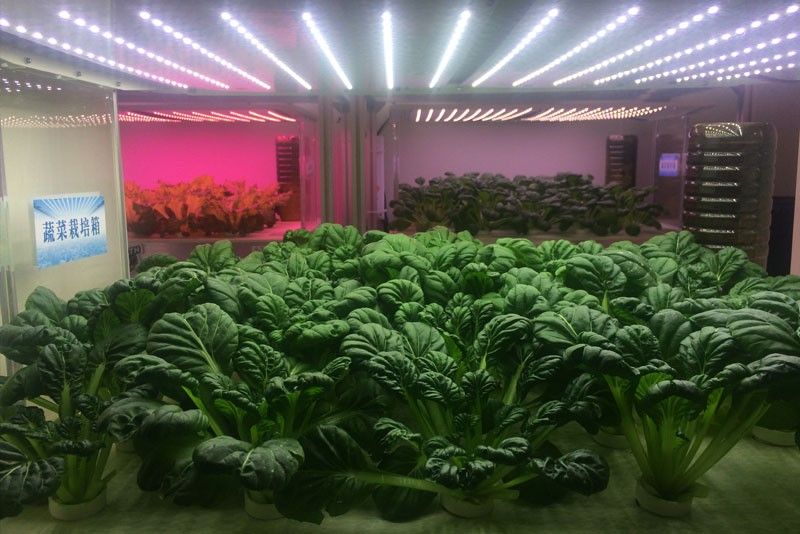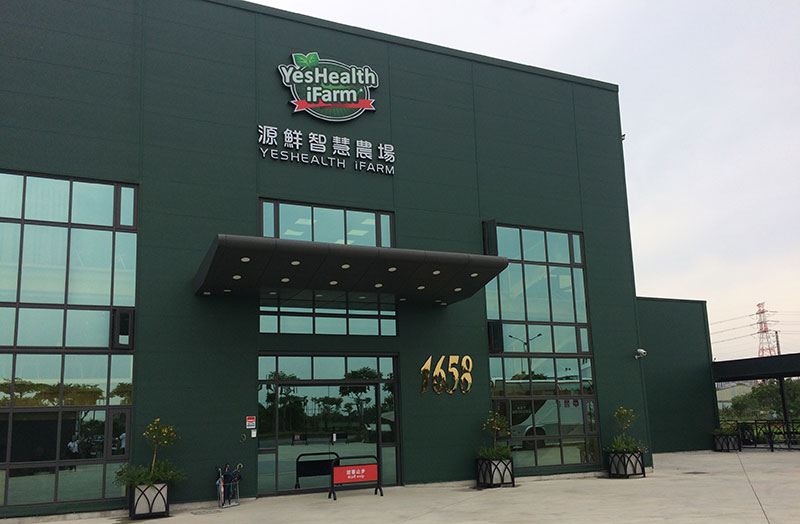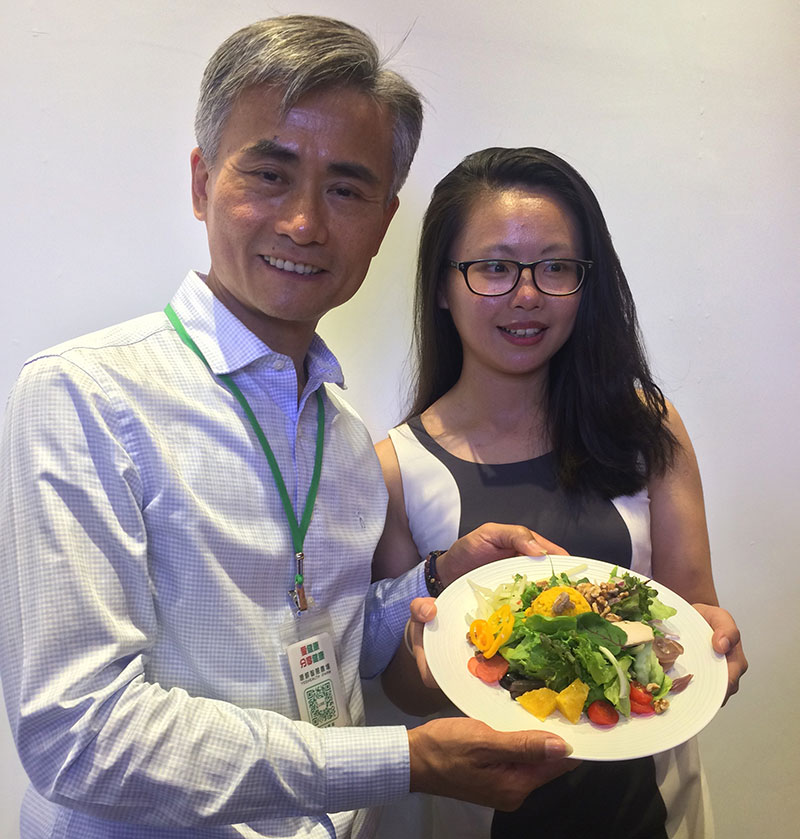Taiwan firm set to bring smart farming to SE Asia

Frequent typhoons spell disaster for Philippine agriculture, but for Taiwan-based smart agriculture firm YesHealth iFarm, it presents a wealth of opportunities to expand its operations in several Asian countries.
MANILA, Philippines — The firm supplies vegetables and herb spices to hotels in Taiwan such as Grand Hyatt and Westin Hotel. Its products also end up in in-flight meals of EVA Air and China Airlines through their catering affiliates.
YesHealth also has a direct-to-customer business line through their ready-to-eat salad packs and other vegetable-based products that are distributed by French supermarket brand Carrefour.
In expanding its footprint overseas, the firm is prepared to export its technology and production system as a turnkey package for companies that want to develop their own brands.
“The Taiwan government has published a policy that encourages companies to do business in Southeast Asia. So I think, for us, it is also a good opportunity to go to Southeast Asia to do this kind of farming. But we need a local partner, a local strategic partner that can help us do this,” company president Winston Tsai told visiting journalists during the recently-held Smart City Brands Media Tour hosted by the Taiwan External Trade Development Council (TAITRA) for foreign journalists.
“In the Philippines, there are frequent typhoons so it will be a good idea to do farming there. So when typhoons come, production will not be affected,” he said.
Its main production facility in Taoyuan City in northern Taiwan grows 40 kinds of vegetables, as well as spices that are usually shipped to South Africa. The current production capacity is placed at 1.6 tons per day.
The 14-level vertical i-Farm basically uses hydroponics, but takes smart farming to a higher level by having year-round complete control of temperature, light, nutrition and protection of plants against pests and diseases.

The facade of the YesHealth iFarm growing facility in Taoyuan City in northern Taiwan.
The company also makes its own fertilizers to ensure optimum nutrition for plants. Seeds are sourced from overseas but these are subjected to a detoxification process to remove impurities prior to growing.
A controlled growing environment ensures a steady supply for orders and steady pricing of produce as production is not interrupted by weather disturbances and pestilence.
Tsai said the meticulously-controlled growing process ensures zero presence of E.coli bacteria, pesticide residue, parasites and heavy metal in the produce.
“The goal is to recreate an environment from 100 years ago which is cleaner,” he said. “Vegetables grow better with less stress.”
The firm’s production and research and development (R&D) facilities are located in Taiwan, China, and Vietnam. A pilot growing facility has been established in England. YesHealth was formally established in 2012 but has been developing the technologies for use in the Taiwan plant since 2008.
The facility in Taiwan also has a tourism component that can be replicated in new plants. For a small fee, visitors can enjoy a tour of the facilities that run largely on renewable energy and have a meal in the restaurant.
The company is quick to point out, however, that vegetables grown in their method cannot be certified and marketed as organic because of the technological intervention in the growing process.
In expanding its reach to Southeast Asia, YesHealth is looking for a local partner that can take care of the sales and marketing in a specific area.
“We want to find a company who wants to produce safe food. We want a partner that has the ability to do the marketing and sales in local area and also they have the team to manage the factory. We at YesHealth will provide the know how and all the technology needs for growing plans and we also provide a team to build the factory for them,” Tsai said.

YesHealth iFarm president and chairman Winston Tsai displays a dish made from the company’s produce.
The company can also assist the investor in the operation of the factory in the first two months to ensure a smooth continuity of operations.
“For the first one to two months, we will send our local operator to teach the local people how to manage the factory, how to harvest, and see if the plants are sick or not. We will provide training for them,” Tsai said.
Investors who will take a chance on this smart-growing system are expected to get a return on their investment within three years if their business is concentrated (70 percent) on supplying other businesses. The recovery period is expected to be shorter if the sizeable part of the business (60 percent) is dedicated to value-added products like salad packs that are sold directly to consumers.
“We encourage companies to create their own brand because it is a way to create higher value,” Tsai said. “We are now seeing a 30 percent growth in revenue because most of the income come from B2C (business-to-customer) operations.”
For operations to become profitable, the production capacity must be at least 1.5 tons daily. A full-scale operation like the one in its 3,500- sqm Taiwan facility would require a staff of 40.
Tsai said the production stability provided by the system can make the pricing of the produce competitive with other products in the market such as organic produce.
“We don’t only target the high class market. The products are made for everybody,” he said.
It’s 150-gram lettuce, for instance, retails in Taiwan for $2 whereas organic lettuce of the same weight retails between $1.5 and $2.8 in supermarkets.
“So we are in the middle,” Tsai said. “Our price is steady all year long because there is no typhoon disruption.”
YesHealth is now focused on producing green leafy vegetables but the company is also exploring the possibility of applying smart technology in rice farming by 2030.
“We are already laying down the technology,” Tsai said.
- Latest

























